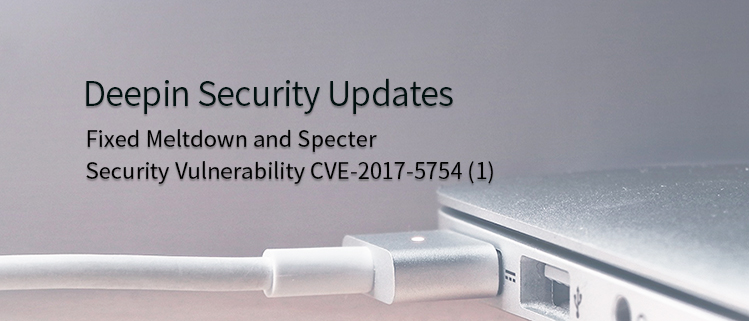
Google Project Zero and other security teams disclosed that there was a serious security vulnerability in Intel and other processor chips, issued a A-level vulnerability risk notice, and reminded that the vulnerability evolved into a A-level cyber security disaster for the cloud and information infrastructure. Relevant vulnerabilities exploit the implementation flaws of the acceleration mechanism worked at chip hardware level to execute side-channel attacks, and indirectly read system memory through CPU cache. Meltdown is named for "melting" the hardware security boundary, and Specter is named for its invisibility.
Vulnerability introduction
There are two methods tp attack Intel processors: Meltdown and Specter. Meltdown refers to CVE-2017-5754 and Specter refers to CVE-2017-5753 and CVE-2017-5715.
Meltdown breaks the most fundamental isolation between user applications and the operating system. This attack allows a program to access the memory, and thus also the secrets, of other programs and the operating system. The bug basically melts security boundaries which are normally enforced by the hardware. Allow low-privileged user-level applications to "cross-boundary" access system-level memory, resulting in data leakage.
Spectre breaks the isolation between different applications. The root cause is speculative execution. This is a basic optimization technique that processors employ to carry out computations for data they "speculate" may be useful in the future. The purpose of speculative execution is to prepare computational results and have them ready if they're ever needed. In the process, Intel did not well isolate low-privileged applications from accessing kernel memory, which means that attackers could deliver malicious applications to get private data that should be isolated.
Influence
This security incident has a wide impact, including:
Processor chip: Intel, ARM, AMD, and other processors may also have the risks.
Operating System: Windows, Linux, macOS, Android
Cloud providers: Amazon, Microsoft, Google, Tencent Cloud, Alibaba Cloud and so on
Various private cloud infrastructures.
Desktop users may encounter attacks that combine this mechanism.
Harmless
Vulnerabilities lead to information leakage in CPU operational mechanisms. Low-level attackers can exploit vulnerabilities to remotely access user information or locally access higher-level memory data.
In actual attack scenario, the attacker can do below under certain conditions:
- Access the underlying operating data, encryption keys and others in local OS;
- Bypass the isolation protection for Kernel and HyperVisor using the leaked information;
- Access the private information of other members in cloud services;
- Steal user private information such as account, password, content, email address, cookie, etc. via browser.
Defense suggestions
Meltdown and Specter are both locally executed vulnerabilities. An attacker who wants to exploit this vulnerability should have code execution privilege on the target machine at first, so as long as the user does not introduce untrusted code, it will not affect the user. However, taking into account that common user has week security awareness, it is not impossible to introduce untrustworthy code, so please fix the bug according to your own situation based on the vendor instructions.
Linux (Kernel)
Apply KPTI / KAISER patches to split the kernel and user spaces, preventing attackers from reading kernel memory under common user privileges.
Browser
Considering that the browser is a common attack surface, it is highly likely that malicious code enters user PC through the browser, so the primary defense for the individual against the vulnerabilities relies on the browser. Here are the defense methods of different browsers:
(1) For Google Chrome users
Turn on Strict Site Isolation in Chrome browser, which reduces the amount of data that can be attacked by side-channels attack, because Chrome renders content for each open website in a separate process. Chrome will fix the vulnerability in late January updates.
(2) For Firefox users
Upgrade Firefox to version 57.0.4: https://www.mozilla.org/en-US/security/advisories/mfsa2018-01/
Countermeasures
In deepin 15.5 updates on January 24, 2018, Linux Kernel 4.14.12 fixed Meltdown vulnerability.
In Deepin Store updates on January 22, 2018 for deepin 15.5, Firefox was updated to version 57.0.4, and Chrome was updated to version 63.0.3239.132, the first phase of fixing Specter vulnerability.
After updating to Google Chrome to version 63.0.3239.132-1, please enable "Strict site isolation" manually:
Type chrome://flags in the address bar and press Enter.
Scroll down the page and find “Strict site isolation” and press the Enable button.
Restart the Chrome browser.
Please update your system as soon as possible to fix vulnerabilities.
Note: Here are references for security updates:
https://security-tracker.debian.org/tracker/CVE-2017-5754
https://security-tracker.debian.org/tracker/CVE-2017-5753
https://security-tracker.debian.org/tracker/CVE-2017-5715
https://meltdownattack.com/https://blog.linuxmint.com/?p=3496
http://www.linuxidc.com/Linux/2018-01/150377.htmhttps://lwn.net/Articles/738975/

另外两个漏洞什么时候发放补丁???
需要等上游信息和全性能的测试。
Spectre漏洞都不敢打补丁,隔壁家的几个流行系统,打了补丁后,都崩掉了
感谢深度的及时更新。安全第一,用户至上。数据无价,技术为王。
更新以后开机无法启动
在启动高级选项中选择4.9.0进入系统。
怎么回退呀?升了vmware也升了,结果用不了了..
在启动高级选项中选择4.9.0进入系统。可以终端中卸载。
Chrome64 发布了 修复了Meltdown和Spectre两处CPU漏洞
已经更新了。
I have a problem with this update: Whe i downloaded this update, my network wireless card dosen´t detect any wireless network (Including my own router), i checked if the network card is shutdown but it is online, the next day i put my computer close to my router to use wire conexion and my wireless card pick up my network, it looks like this update has reduced my wireless detection range.
貌似安装了这两个更新后系统启动变慢了,在deepin logo处停留的时间明显加长了
听说会影响性能 你试试esc 看看提示
Hi - the site you refer to about the bug is incorrect.
However, the issues have been addressed with the kernel upgrade, where the paging systems tables have been moved.
Please always check the kernel update pages - on Github or direct, never consult a discussion forum on the net, they do not know and in this case does not understand how virtual memory is done in Linux. Some people are more interested in getting their own ideas air, regardless of them being correct or not. A very revealing question is asked in the discussion (about applicability on the SPARC servers) and the response expose the ignorance. As long as you upgrade the kernel, you are fine. The kernel is vulnerable during the initial of the boot, but so what, at that stage, there is just one kernel and just one thread in one process.